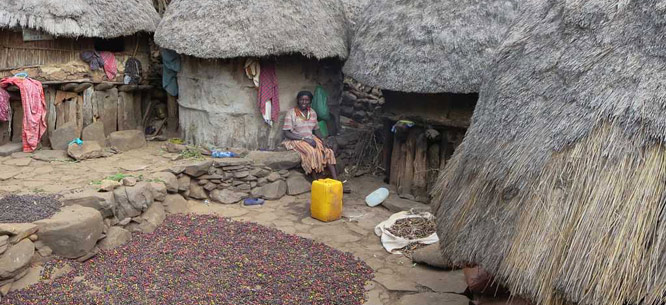Starbucks Wants To Talk About Race. But Does It Want to Talk About Racism?
Starbucks Wants To Talk About Race. But Does It Want to Talk About Racism?

According to Fortune magazine, Starbucks will “encourage baristas to discuss race relations with customers”. Starbucks’ media page says that a series of “racially charged tragedies” sparked the initiative “Race Together”. The initiative comes with stickers:
[Race Together] may also engage customers in conversation through Race Together stickers available in select stores, and a special USA Today newspaper section arriving in stores later this week.
I like stickers as much as the next kid who grew up in America in the 1980s. But, I am also a teacher. One of the things I have learned from teaching race and inequality to college students is that there is little reticence about race. My students love to talk about race. They like to talk about the half Native American friend who only claims to be a minority on college forms to get affirmative action. They like to talk about the latest race films. This semester it is Selma. Last year it was Django. They talk about what Pacific Islander actually means.
Strangers talk to me about race, too. Just last month, my white cab driver told me about his black girlfriend. So did a white guy at a conference. Actually, I get that one a lot. Old people in diners tell me about Obama’s race problem. People on the train to the airport talk to me about Ferguson.
|
This article originally
appeared at You might also like: |
People talk about race to me but they rarely talk to me about racism. Like Starbucks, there are all kinds of euphemisms for racism: racially-tinged, racially charged, racially motivated, racially insensitive. Fortune says the “Race Together” paraphenelia will feature a variety of “perspectives” on race. There is no word on the perspectives about racism that might be featured.
It is hard to know where to begin talking about race the way Starbucks wants to talk about race. I know theories, histories and measurements of race and racism. I do not know much about race “perspectives” that might fit on stickers that would be worth sticking somewhere. I do know that I require payment to talk about race and racism. It is a hard job. People don’t mind the race part when it is about sharing feelings and opinions. It gets a lot harder to talk about the value of wealth from slave labor in the 18th century, for instance. If you really want to bring a party to a halt, you can talk about racial differences in death penalty sentencing when the victim is black and the murderer white and vice-versa.
It takes a lot of training and a lot of institutional support to teach people things they would rather not hear. I wonder what kind of training and support the hourly wage baristas at Starbucks will get. There is no reporting yet on whether Starbucks issued a training module on “when the customer is always right and the customer wants to be right and racist”.
I also wonder about the value of discussing “race” as corporate social good. Granted, there isn’t much left that isn’t for sale. Starbucks is betting that we are at a point when racism not only does not have racists but race can be explained on a sticker. I disagree. But, we may be at a point when the language about race and racism has been so degraded that it can be a corporate initiative. By definition that means having little potential for risk and some amorphous attention value. If talking about race is a shortcut to the sort of medium fame that is all the rage on social media, then talking about race is meaningless. That wouldn’t matter to Starbucks but it should matter to those of us who talk seriously about race and racism.
The best and worst case scenario is Starbucks CEO Howard Schultz actually thinks this initiative is a real public service. The best because maybe it is not just evil corporate co-option and the worst because no adult human with every information delivery method available to him or her should think this simply about anything so demonstrably complex.
Either way, as someone said on Twitter, “Race Together” could put a whole new spin on the Flat White controversy.
Tressie McMillan Cottom is a sociologist and writer in Atlanta, Georgia, where she is finishing her PhD at Emory University. She has two books forthcoming on privatized higher education and inequality. She can be found at www.tressiemc.com and on Twitter @tressiemcphd.







